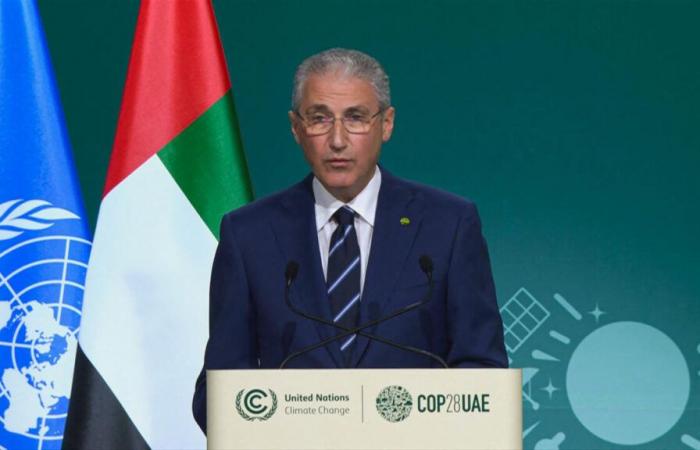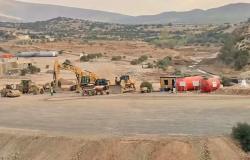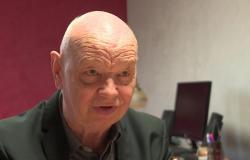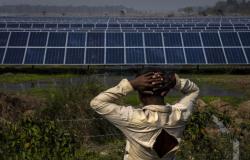A few hours before its closing, African ministers responsible for financing the fight against climate change call for this 29th Conference of the Parties (COP29) to the United Nations Framework Convention on Climate Change (UNFCCC) is keeping its promises for the African continent and the most vulnerable regions. At a press conference, as part of this international conclave bringing together world leaders in Baku, Azerbaijan, to discuss the future of the planet in the grip of climate variations with immeasurable consequences on communities, from November 11 to 22 2024, these representatives of the continent who chose to speak with one voice declared that there is no question of “tolerating that those who have contributed the least to the problem are the ones who exhaust their resources to fight the problem they caused the least.”
COP29 is coming to an end. The ministers Africans responsible for Financing the Fight against Climate Change, mindful of its importance and the need to reach a fair and just financial agreement, reiterated Africa’s long-standing position in expressing concerns regarding the volume and quality of financing, as well as the contributor base. At a press conference, the Minister of Environment and Climate Change of Sierra Leone, as well as his counterparts from Gambia, Zambia, Nigeria and Angola, noted that “the challenges are numerous and vital: from mobilizing climate finance to accelerating adaptation efforts, including concrete measures to manage loss and damage”. These representatives of the African continent, who have chosen to speak with one voice, are asking that COP29 in Baku, Azerbaijan, from November 11 to 22, keep its promises; the stakes being high for Africa and vulnerable regions.
“WE CANNOT TOLERATE THAT THOSE WHO HAVE CONTRIBUTED THE LEAST TO THE PROBLEM ARE THOSE WHO EXHAUSTE THEIR RESOURCES TO FIGHT AGAINST THE PROBLEM…”
In his intervention, Mike Elton Mposha, Minister of Green Economy and Environment of Zambia, said: “So we are all partners, and we cannot tolerate that those who have contributed the least to the problem are the ones who exhaust their resources to fight the problem they caused the least. We want the funding to be used to save our countries, to fight climate change, so that we do not continue to use our limited resources to develop our countries and fight climate change, an issue or problem that has been caused, as others have said it, by other countries”, he insisted. And to note that “More than 50% of planned harvests have been lost to climate change.” “Developed countries have made numerous commitments to combat climate change. These commitments must now be put into practice. So, as I said, we expect that COP29 will not end without clear actions on financing.
As for Balarabe Abbas Lawal, Minister of the Environment of Nigeria, he recalled that “Developed countries have been built on the foundation of pollution for centuries. Our people have been providing subsidies for centuries, at the expense of our lives and livelihoods. This should take the form of public funding. he emphasized, noting that “Finance becomes a mirage – the more we talk about it, the more it disappears”.
“THE COST OF ADAPTATION IN SUB-SAHARAN AFRICA IS ESTIMATED BETWEEN 30 AND 50 BILLION DOLLARS PER YEAR, OR 2 TO 3% OF THE REGION’S GDP”
For Jiwoh Abdulai, Minister of Environment and Climate Change of Sierra Leone, citing the World Meteorological Organization (WMO), “African countries lose on average 2 to 5% of their GDP due to extreme weather events. The cost of adaptation in sub-Saharan Africa is estimated at between $30 and $50 billion per year, or 2 to 3% of the region’s GDP, over the coming years, according to the WMO. Context is essential. We are talking about lives and livelihoods. These numbers are not abstract. They affect us every day. Our fellow citizens pay with their lives. Global warming is a reality for our countries and our economies. The people responsible for this problem are clearly the developed countries. And the science clearly shows how much it will cost. Don’t use the word “donor.” It involves charity. There is a climate debt that must be paid.
For his part, Rohey John, Minister of Environment, Climate Change and Natural Resources of The Gambia called for correcting the mistakes of the past. “We cannot live in conditions where a crisis can wipe out a community for a crime it did not commit. We need to have a landing ground that will show the rest of the world that we mean business. The $100 billion did not produce the expected results. We must change. We cannot allow humanity to gradually die out.” Therefore, “Let’s correct the mistake we made in reaching the $100 billion goal. “That’s why we are here to change the ways of working and come up with new strategies, new quantum, new contributor base, and the implementation plans must be very clear, transparent, traceable and achievable.”
“IT’S NOT A CRIME TO REQUIRE DEVELOPED COUNTRIES TO PAY FOR CLIMATE ACTION”
For his part, the Representative (of Ana Paula, Minister of the Environment) of Angola engages developed countries for climate action. “Everything we have has been extracted from the continent and exported… We also need to change the status quo.” “It is not a crime to require developed countries to pay for climate action. Vulnerable countries suffer most of the consequences in terms of human lives. We cannot talk about the same things at every COP without achieving concrete results. COP29 must produce results for this COP to be different.” “These meetings are expensive to organize and attend. They cost our countries a lot of money. As African countries, we are here in good faith. We expect the same from developed countries. Good faith means they must keep their promises for a fair financial deal.” “We know where we have been, even if we have to repeat ourselves more and more to be heard. But we believe that the world listens to us, otherwise we would not be able to discuss again and again.
COP29 brings together world leaders in Baku, Azerbaijan, from November 11 to 22, to discuss several topics relating to the fight against climate change, including the mobilization of financing for adaptation with the objective of maintaining global warming. earth at 1.5°.
I.DIALLO






